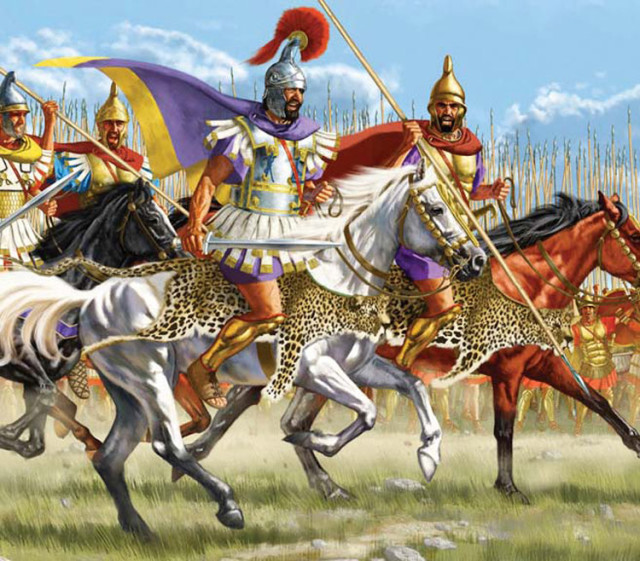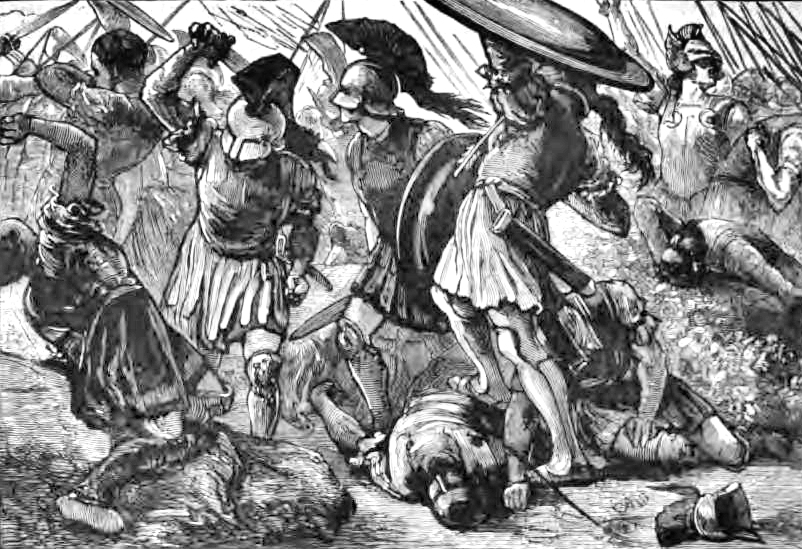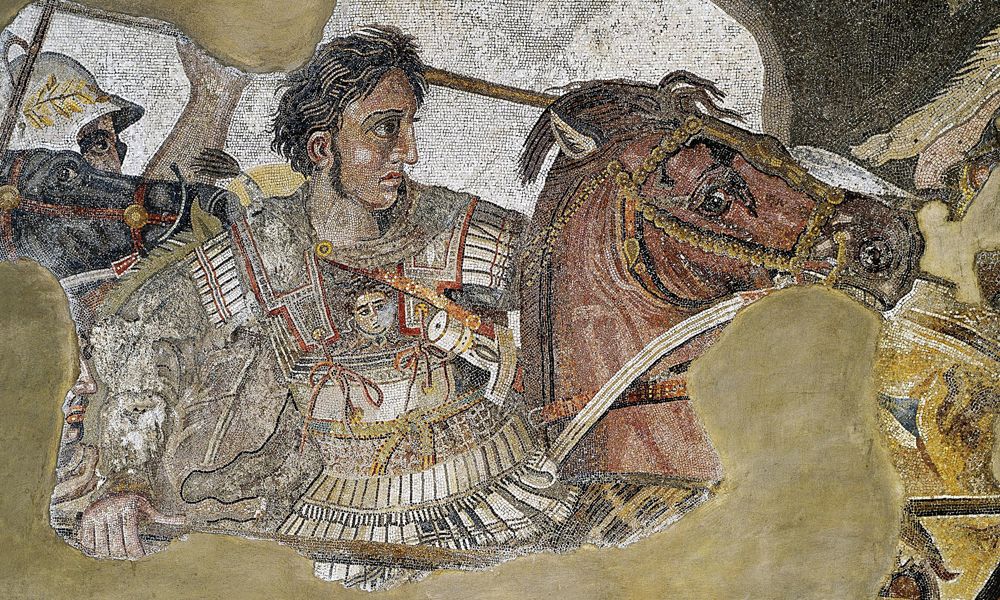The Battle of Chaeronea was held on August 2, 338 BCE in Boeotia, central Greece, between the army of Philip II of Macedon and a coalition of Greek city-states led by Thebes and Athens.
The victory, partly credited to Philip’s 18-year-old son Alexander the Great, cemented the Macedonian hegemony in Greece and ended effective military resistance to Philip in the region.
To mark the day of the battle, we take a look back at how it all played out.
Before the battle:
In 339 BC, Philip II of Macedon found the occasion to intervene in Southern Greece. The amphitheater conference of Delphi accused the Lokros of Amfissa of usurping the land of the Oracle and demanded the declaration of a holy war for their punishment.

The representatives of the cities, without the participation of Athens and Thebes, appointed Filippos as general.
Philip, with 30,000 infantry and 2,000 cavalry, led by his 18-year-old son Alexander, set out for Southern Greece and after passing Thermopylae, captured Elatia, where he encamped, while part of his army destroyed Amfissa.
The occupation of Elatia gave Philip control of the road to Boeotia and Attica and his move showed that he was determined to end his accounts with Athens and Thebes.
This news caused unrest among the two “pre-eternal” enemies who, on the initiative of the orator Demosthenes (leader of the anti-Macedonian faction in Athens), put aside their differences and formed an alliance.
The Battle of Chaeronea:

The two opposing armies took a battle position in the plain of Chaeronea on August 2, 338 BC.
The Allies deployed 30,000 men and 500 cavalry. The Athenians were led by Generals Stratoklis, Haris and Lysiklis, while the Thebans were led by Theagenis.
The army of the Macedonians, led by Philip, excelled in cohesion and military experience. He had high-level leaders, such as Alexander, Antipater and Parmenion, while the Allied generals were of limited ability, with little combat experience. An exception to the military mediocrity of the allied force are the chosen Thebans of the Holy Corps.
Philip led the right wing and was facing the Athenians, while Alexander was at the head of the cavalry and was facing the Thebans. At the beginning of the battle, Philip maintained a defensive stance against the Athenians, while Alexander forced the Thebans to retreat.
Alexander then turned to the right and sided with the Athenians, who, retaliating from two points, retreated.

The battle at this point had been decided. The Athenians lost 1000 men, while 2000 were taken prisoner. The losses of the Thebans were similar.
Legacy of the battle:
Archaeological excavations near the city of Chaeronea have uncovered a mound containing the ashes of Macedonian troops, clearly built as a monument to Philip’s victory.
In addition, 254 skeletons found buried beneath a funerary marker are believed to be the remains of the Sacred Band, buried in pairs.
The battle marked the end of effective military opposition to Philip in Greece and heralded the beginning of Macedonian domination in the region.
Source: San Simera.

